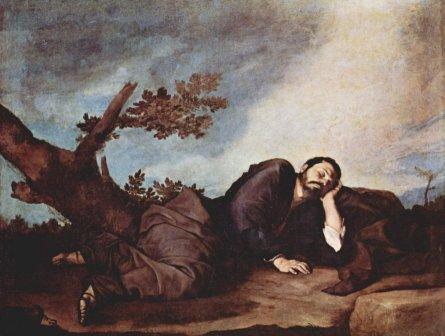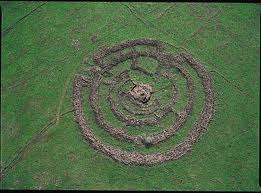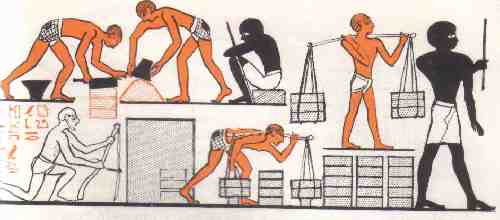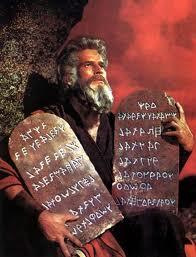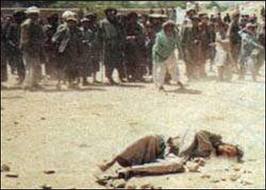|
Page 5 of 10 pages |
|
"Moses" and Tithe
Enforcement of Vows after Moses
|
|
Genesis 28:10 "And Jacob went out from Beer-sheba, and went toward Haran. 11 And he lighted upon a certain place, and tarried there all night, because the sun was set; and he took of the stones of that place, and put them for his pillows, and laid down in that place to sleep."
Genesis 28:12 "And he dreamed, and behold a ladder set up on the earth, and the top of it reached to heaven: and behold the angels of God ascending and descending on it."
Genesis 28:13 "And, behold, the Lord stood above it, and said, I am the Lord God of Abraham thy father, and the God of Isaac: the land whereon thou liest, to thee will I give it, and to thy seed; 14 And thy seed shall be of the dust of the earth, and thou shalt spread abroad to the west, and to the east, and to the north, and to the south; and in thee and in thy seed shall all the families of the earth be blessed. 15 And, behold, I am with thee, and will keep thee in all places whither thou goest, and will bring thee again into this land; for I will not leave thee, until I have done that which I have spoken to thee of." Note that however carefully you read what the Lord said to Jacob in the dream or after the dream (its not certain which occurred), he (the Lord) DID NOT SAY "Give me 10% of everything you own now (which was practically nothing) and later (which amounted to a lot of sheep and goats and very little money) AND THEN I will bless you with (this and that)." He (the Lord) made an unconditional promise to Jacob, as he also had to Abraham. "I am the Lord. I'm going to do what I am going to do." Genesis 28:16 And Jacob awakened out of his sleep, and he said, Surely the Lord is in this place; and I knew it not. 17 And he was afraid, and said, How dreadful is this place! this is none other but the house of God, and this is the gate of heaven."
Once Israel gained control of the Golon heights north and east of the Sea of Galilee they found this ancient rock structure which most feel resembles Stonehenge in Britain. Some sort of "Gateway to Heaven" in the Astrological sense, as Jacob said in Genesis 28:17 This is perhaps where Jacob spent the night with his stone pillows! Genesis 28:18 "And Jacob rose up early in the morning, and took the stone that he had put for his pillows, and set it up as a pillar, and poured oil upon the top of it. 19 And he called the name of that place Beth-el: but the name of that city was called Luz at the first." Genesis 28:20 " And Jacob vowed a vow, saying, If God will be with me, and will keep in this way that I go, and will give me bread to eat, and raiment to put on, 21 So that I come again to my father's house in peace; then shall the Lord be my God; and this stone, which I have set up for a pillar, shall be God's house: and of all that thou shalt give me I will surely give the tenth unto thee." A Vow that Wasn't Kept? The most suspicious and critical readers of this story I have quoted above, which will include a lot of modern Biblical critics, will check the rest of the story of Jacob's life as recorded in the Bible, to see if he indeed keep his promise to pay a 10% tithe to some representative of the "most high God" on earth, as Abraham is recorded as doing to Melchizidek , king of Salem, and "priest of the most high God." They, and you too, if you choose to do this, will discover that there is no record that Jacob paid this 10% tithe, even once. Or a Contract that God, not Jacob, didn't Keep? Genesis 28:13 "And, behold, the Lord stood above it, and said, I am the Lord God of Abraham thy father, and the God of Isaac: the land whereon thou liest, to thee will I give it,--" The Biblical facts of this matter are: that when Jacob returned with his large family to perhaps the Golan heights, where he may have made this promise, he had to hurry through because he heard that Esau was on his way with an army to meet him, and supposedly kill him. He never himself owned even a square foot of Canaan, but was a wandering nomad. He settled in Egypt as an old man, but Egypt was NOT the land God promised him. " and to thy seed; ---" The Biblical facts and historical facts here are that, Yes, Jacob's descendents did finally own Galilee, Samaria, and Judah hundreds of years after Jacob's death, but of course Judah himself had no way of knowing that this would be true in his lifetime. Hebrews 11:9 "By faith he (Abraham) sojourned in the land of promise, as in a strange country, dwelling in tabernacles (tents) with Isaac and Jacob, the heirs with him of the same promise:--- 13 These all died in faith, not having received the promises, but having seen them afar off, and were persuaded of them, and embraced them, and confessed that they were strangers and pilgrims on the earth." Genesis 28:14 "And thy seed shall be as the dust of the earth,--" Unlike Abraham, who had to wait until he was 100 years old to have the heir that God approved of, and Isaac who had twins at 60 years old, Jacob did have 12 sons and 1 daughter. But he only was this prolific because he had two wives and two concubines, and 13 children do not exactly equal "as the dust of the earth." "--and thou shalt spread abroad to the west, and to the east, and to the north, and to the south;--" Yes, but as captives, slaves, and exiles --- the "Diaspora Jews" was not exactly the promise that Jacob may have envisioned! "-- and in thee and in thy seed shall all the families of the earth be blessed." Large segments of the world's population have hated and reviled the Jews virtually from the day Jacob had this dream, starting, of course, with Jacob's brother Esau, reaching perhaps a peak during the Jewish holocaust of the early 1900s and WWII, and continuing still as the Arab and Muslim nations deny Israel the "right to exist". Genesis 28:15 "And, behold, I am with thee, and will keep thee in all places whither thou goest, and will bring thee again into this land; for I will not leave thee, until I have done that which I have spoken to thee of." Having received little or no evidence that this was indeed the case, and perhaps waiting for some evidence it was, perhaps Jacob was waiting for some of this to happen before he started paying that 10% tithe. It was, after all, a conditional vow on his part. No One and No Place to Pay Tithe To! Exodus 1:1-5 gives us a clue to another reason that Jacob may not have paid a 10% tithe to anyone representing "the most high God" on earth. There was no specified person to pay tithe to, and no specified place to pay it! Exodus 1:1 "Now these are the names of the children of Israel, which came into Egypt; every man and his household came with Jacob. ---5 And all the souls that came out of the loins of Jacob were seventy souls; for Joseph was in Egypt already." Slaves Making Bricks
Exodus 1:8 "Now there arose up a new king over Egypt, which knew not Joseph. --11 Therefore they set over them (Jacob's descendents, the potential tithe-payers) taskmasters to afflict them with their burdens. And they built for Pharaoh treasure cities, Pithom and Ramses. -- 13 And the Egyptians made the children of Israel to serve with rigour: -- 14 And they made their lives bitter with hard bondage, in morter, and in brick, and in all manner of service in the field: all their service, wherein they made them serve, was with rigour." And evidently without pay, for the Israelites are said to have borrowed gold and jewels from the Egyptians just before the passover on which they left Egypt. No pay, no tithe! Tithe in the Book of Exodus Surprise! The words "tithe" and "tithing" are not mentioned even once in the entire book of Exodus. On the other hand, free-will offerings are mentioned many times. Indeed, the tabernacle made for God in the wilderness was made entirely from materials contributed by the former slaves in free-will offerings! Exodus 25:1 "And the Lord spake unto Moses, saying, 2 Speak unto the children of Israel, that they bring me an offering: of every man that giveth it willingly with his heart ye shall take my offering. "Tithe" and "tithing" are indeed mentioned in Leviticus, Numbers, and Deuteronomy, but most modern scholars agree that these other passages were added much later by a class of priests and Levites that benifitted from these tithes. "Moses" the Law Giver
We are led to believe by Jewish traditions that "Moses", and he alone, composed the first five books of the Bible. Genesis, Exodus, Leviticus, Numbers, and Deuteronomy. Most modern scholars are now quite certain that these books were written by an anonymous group of writers they have identified by the letters "J" for Jahwist, "E" for Elohist, "P" for Priestly, and "R" for Redactor. (amongst others). Whether "Moses" wrote all these books makes little difference to me on this page, since nobody really knows who "Moses" was, where he was born, or even very much about his life. He most likely is a compilation of several or many people, used to promote various agendas. "Moses" on Vows Although vows are not mentioned in Exodus also, Leviticus devotes an entire chapter, chapter 27, to something called "singular" vows. Here's what the Pilgrim Study Bible has to say about "singular" vows. Page 179 relating to Lev. 27:3 "A SINGULAR VOW. The vow was a voluntary undertaking on the part of any Israelite, to give himself and his possessions to God. As all the people who made vows could not serve in the Tabernacle, each of those who could not do so gave large gifts to God instead. The size of the gift was decided by the priest, according to the wealth or poverty of the man who offered the vow. We have no such order in the New Testament, but so great is the love of Christ that, when we are born again, we owe our whole lives and all our possessions to God -- not just a part - to be used for Him (See Rom. 12:1; 1 Cor. 6:19,20)
4 of the last 5 verses of Leviticus 27 switch from vows to tithes (evidently a vow of 10%) as follows: Lev. 27:30 "And all the tithe of the land, whether of the seed of the land, or of the fruit of the tree, is the Lord's: it is holy unto the Lord, 31 And if a man will at all redeem ought of his tithes, he shall add thereto the fifth part thereof. 32 And concerning the tithe of the herd, or of the flock, even of whatsoever passeth under the rod, the tenth shall be holy unto the Lord. 33 He shall not search whether it be good or bad, neither shall he change it: and if he change it at all, then both it and the change thereof shall be holy; it shall not be redeemed." "Moses" on Enforcement If one were to ask the "Moses" of the 5 "Books of Moses" what should be done with a person who refused to pay tithe, or who broke a vow, there's no reason to believe that the punishment would be any other than his usual punishment for such a rebellious attitude --- the punishment would be death, preferably immediately, and most likely by stoning! Number 15:32 "And while the children of Israel were in the wilderness, they found a man that gathered sticks upon the sabbath day. 33 And they that found him gathering sticks brought him unto Moses and Aaron, and unto all the congregation. 34 And they put him in ward, because it was not declared what should be done to him. 35 And the Lord said unto Moses, The man shall be surely put to death: all the congregation shall stone him with stones without the camp." 36 "And all the congregation brought him without the camp, and stoned him with stones, and he died; as the Lord commanded Moses."
|
|
NEXT: Malachi's Curse on non-Tithe-Payers Page 7: Tithe Terrorism Simplified and Condemned Page 8: Dan's Story, Practical Financial Morality Pages 9, 10 Jesus and Tithe-Paying Links are on Page 8
|
